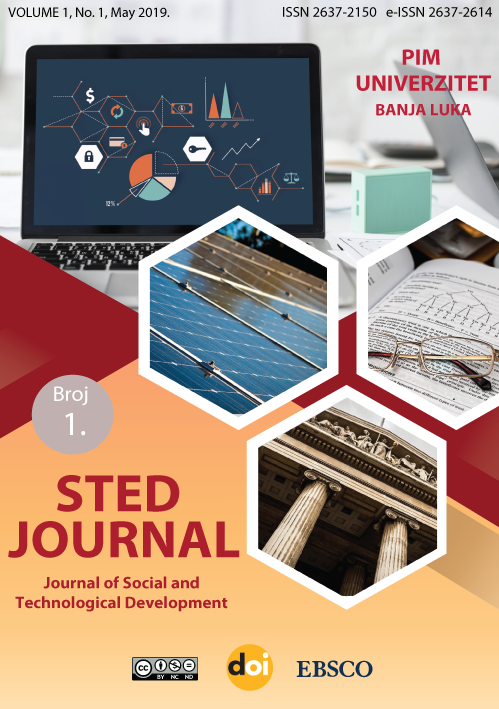Položaj inteligencije u selektovanim državama Jugoistočne Evrope
The position of intelligentsia in the selected countries in South-eastern Europe
Author(s): Veselin Drašković, Radislav Jovović, Sanja Bauk, Mimo DraškovićSubject(s): Social Sciences, Sociology, Social differentiation, Sociology of Culture, Social Norms / Social Control
Published by: Univerzitet za poslovni inženjering i menadžment
Keywords: intelligentsia;position and boundaries of the intelligentsia;Southeastern Europe;
Summary/Abstract: The subject of the paper is a) an explanation of the term of intelligence, b) a finding of deterioration of the social status (position) of intelligence, and (i) descriptive and hypothetical analysis of the root causes in selected post socialistic countries in South-Eastern Europe, Bosnia and Herzegovina, Montenegro, Croatia and Serbia. The aim of the research is to point to the importance of the social role of intelligence, the boundaries of its development in the observed states in socialism and the period of post-socialist transition, as well as the hypothetical research of the perception of the position of intelligence and the intensity of the influence of the basic factors on it. The paper explains in a gradual way the causes and consequences of neglecting the role of intelligence in the observed countries, which have followed a similar developmental path. It shows that this is neither in line with the civilization achievements and intelligence potentials nor with its position in developed countries in which intelligence is a valued profession and social group with a significant political role in society and it is the main bearer of social consciousness. It is the most sophisticated group in society, and in the developed world it has the highest social prestige and authority, as it creates significant achievements in the fields of science, culture, journalism, literature, art and others. As intelligence unites knowledge, truth, moral values and aesthetic judgement, its ignorance can be reasonably understood as denying those principles in society. The hypothesis is that the aggravation of the intelligence position in the countries concerned has been caused by the synergistic influence of the complex braking factors, which have been of political, economic and institutional nature. By using polling method, the initial hypothesis has been hypothetically verified. In conclusion, the authors point to a) the need to improve the position of intelligence and intensify its role in society as a precondition for overcoming the existing institutional, social, economic and general development problems; and b) basic reasons for the position of intelligence. In addition, the survey results of 400 respondents from 60-75 age-old intellectuals in the four observed states hypothetically indicate that they are in a large percentage and sufficiently homogeneous to assess the deteriorating position of intelligence in society as well as its root causes proposed by researchers.
Journal: Časopis o društvenom i tehnološkom razvoju
- Issue Year: 1/2019
- Issue No: 1
- Page Range: 36-44
- Page Count: 9
- Language: Serbian

